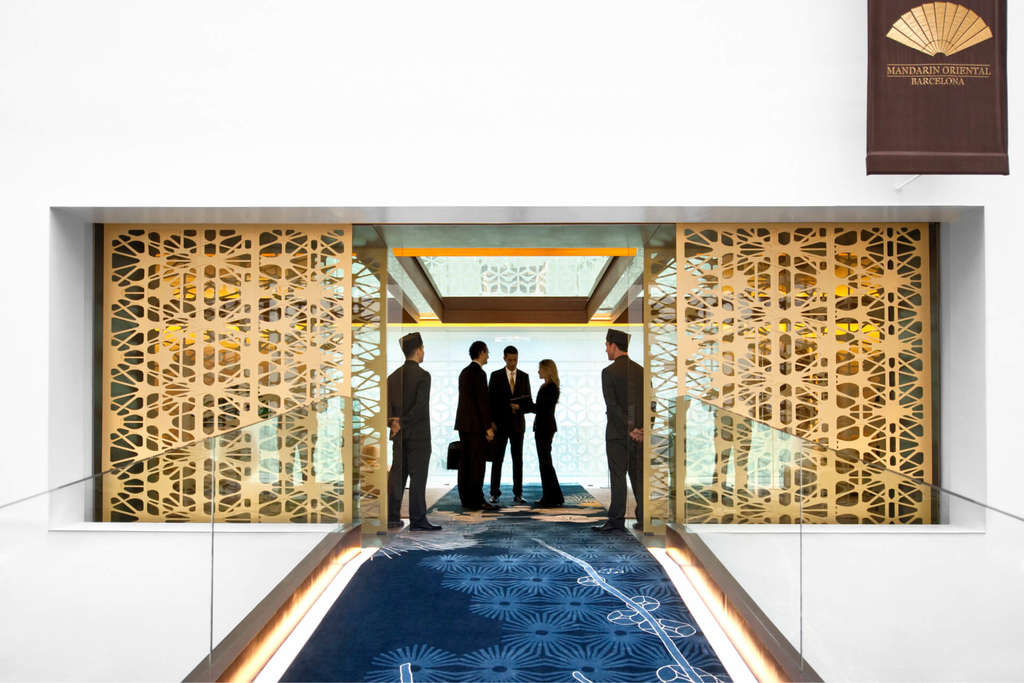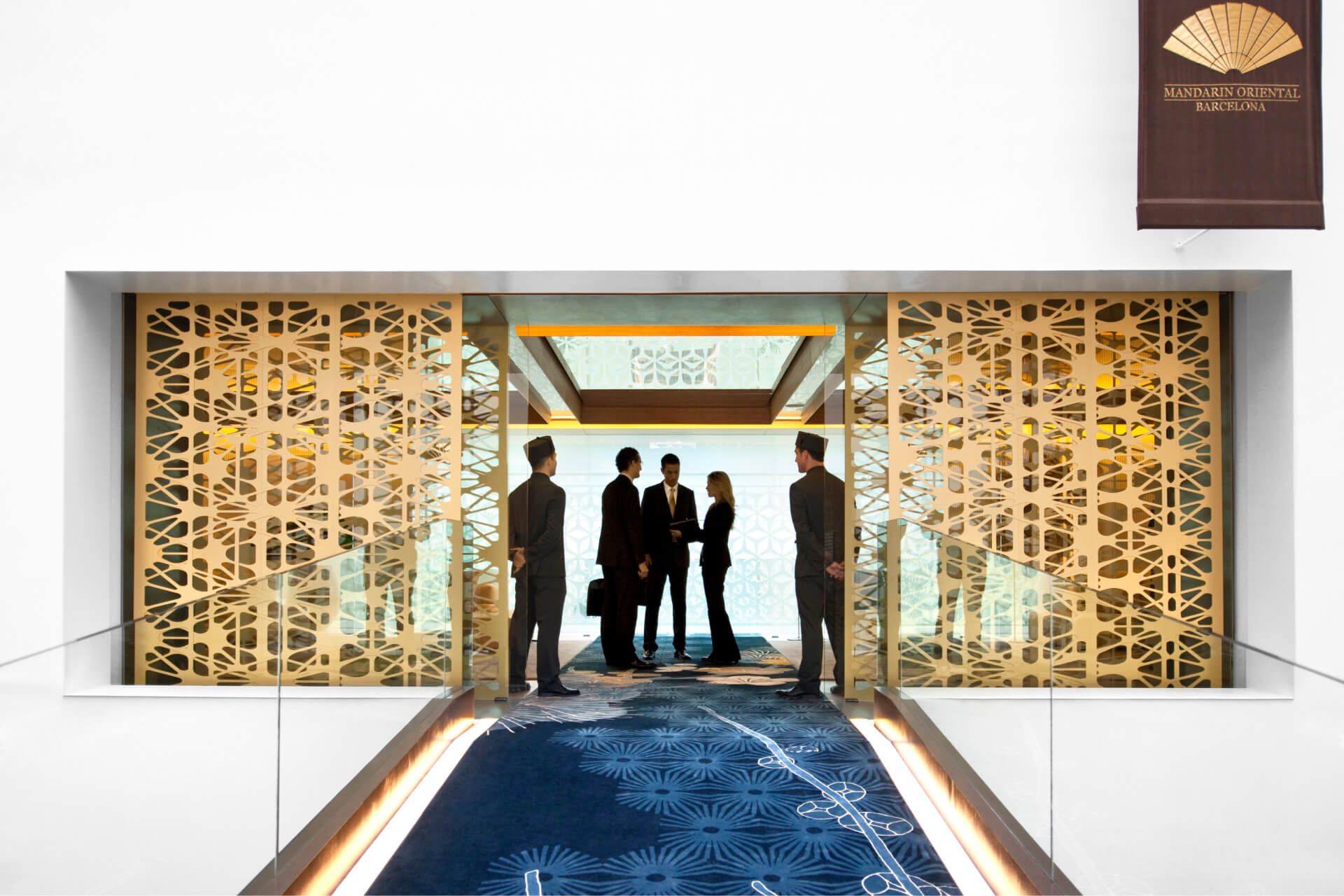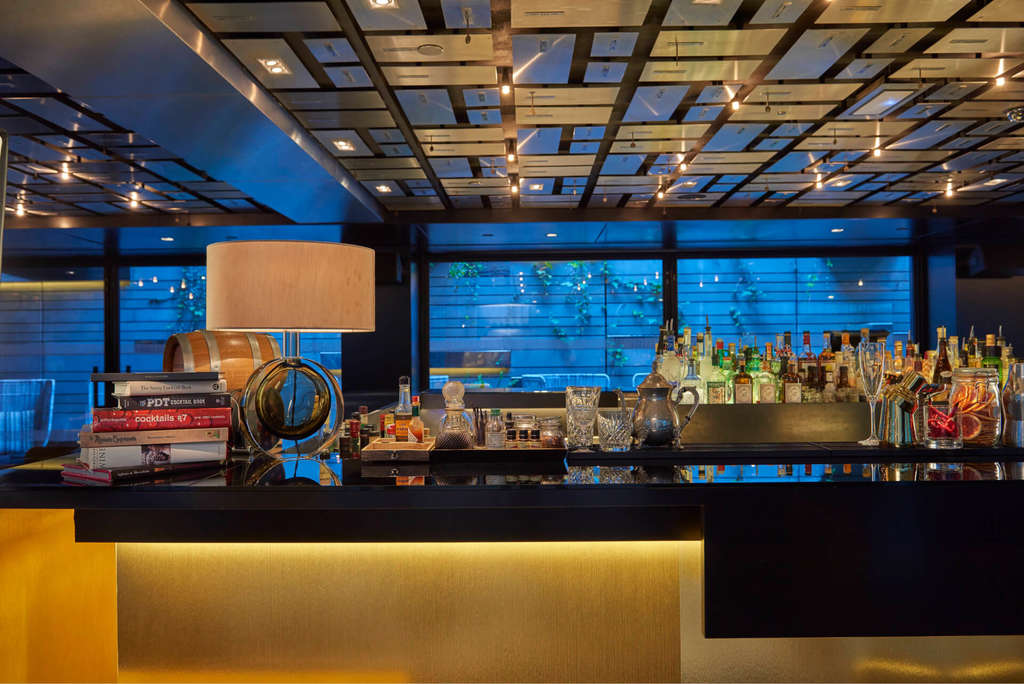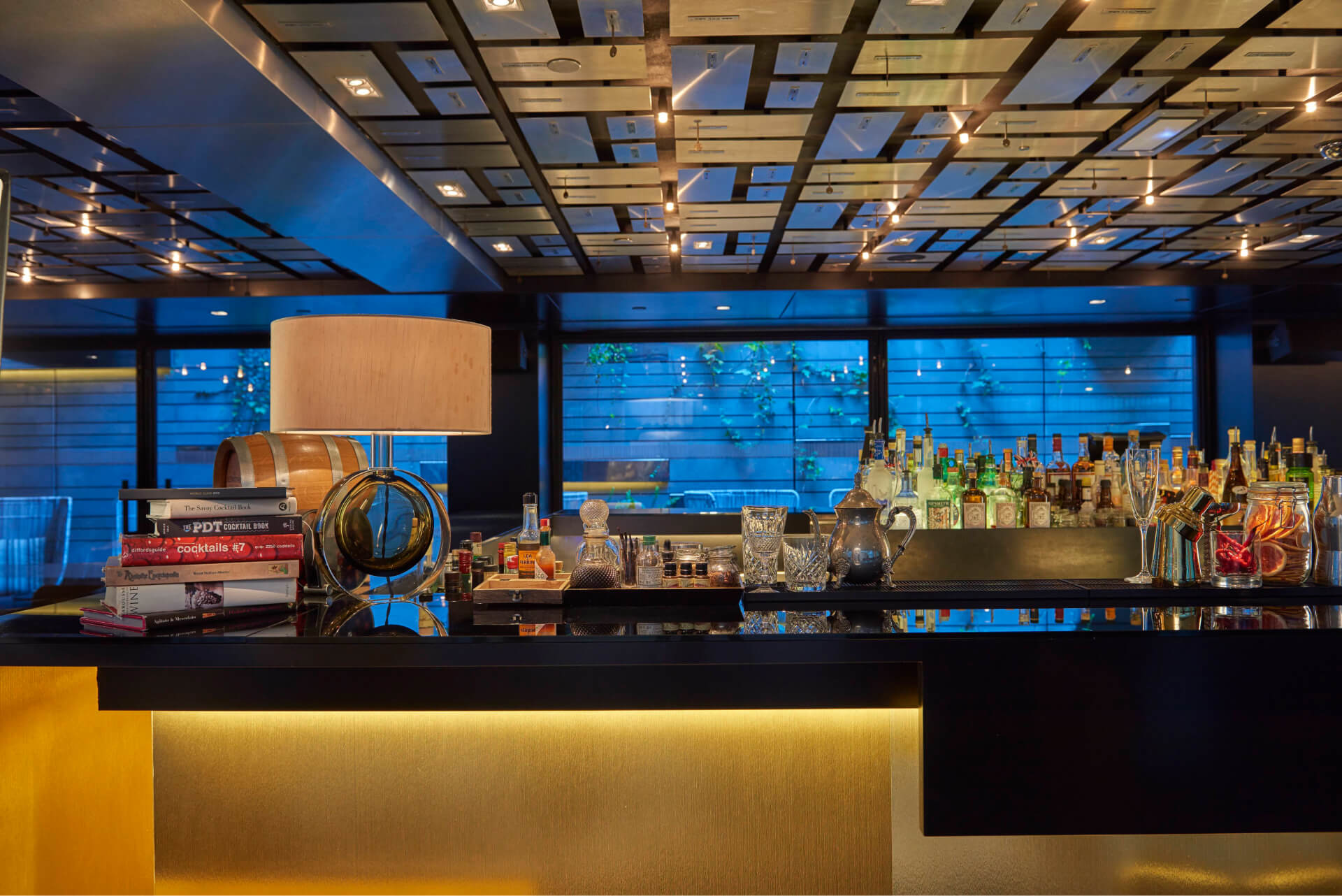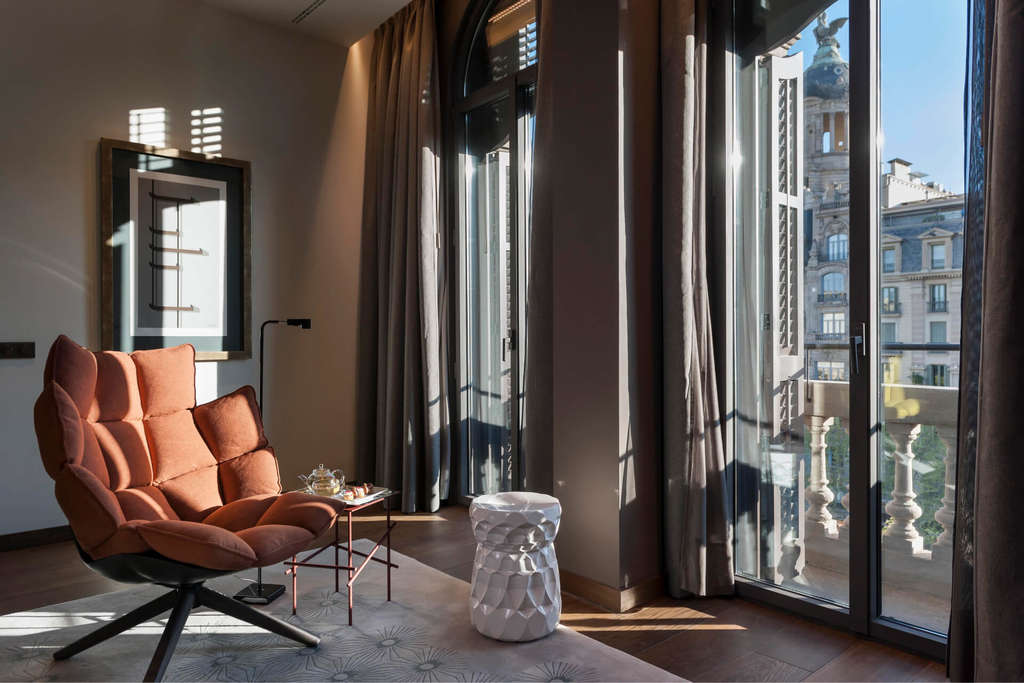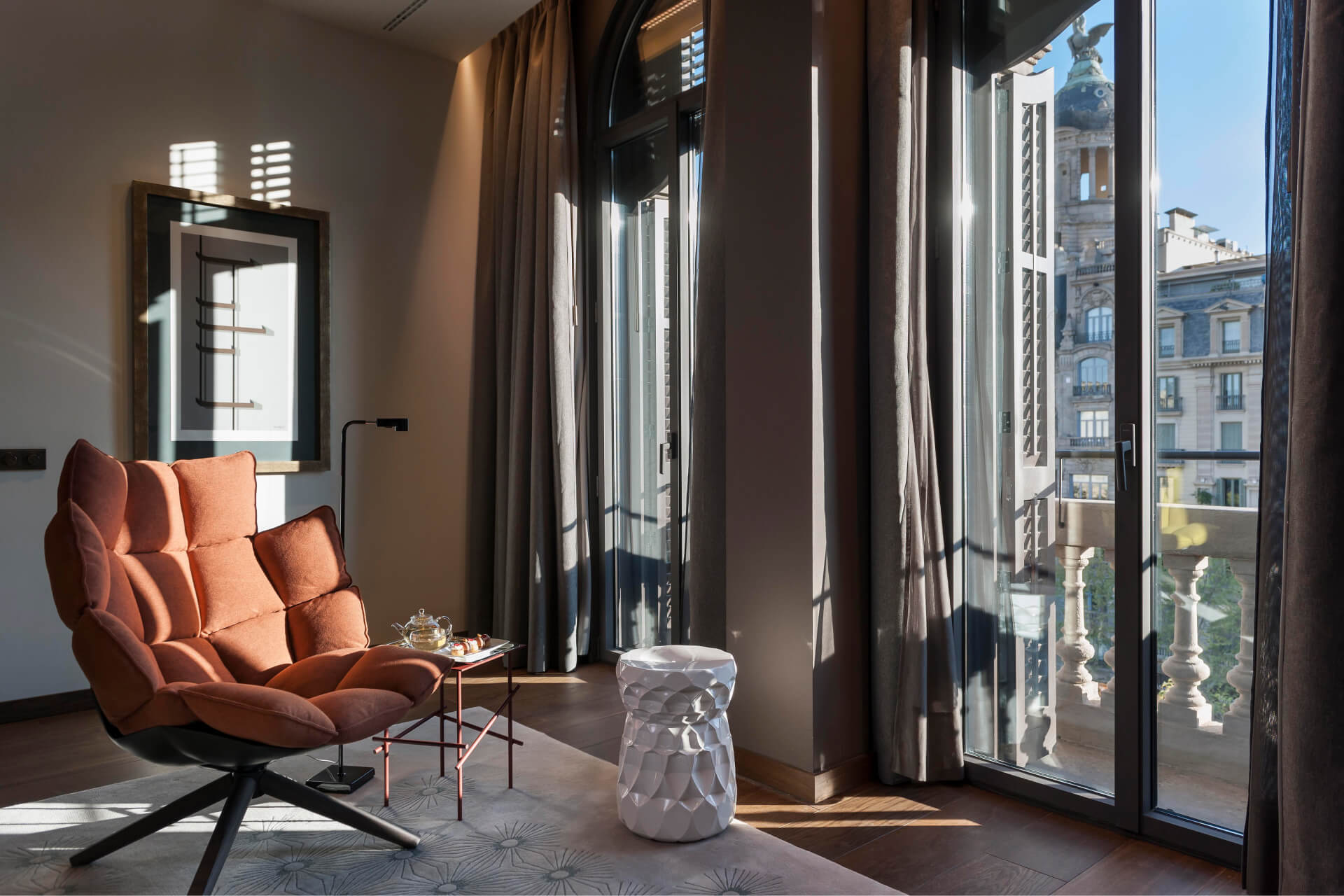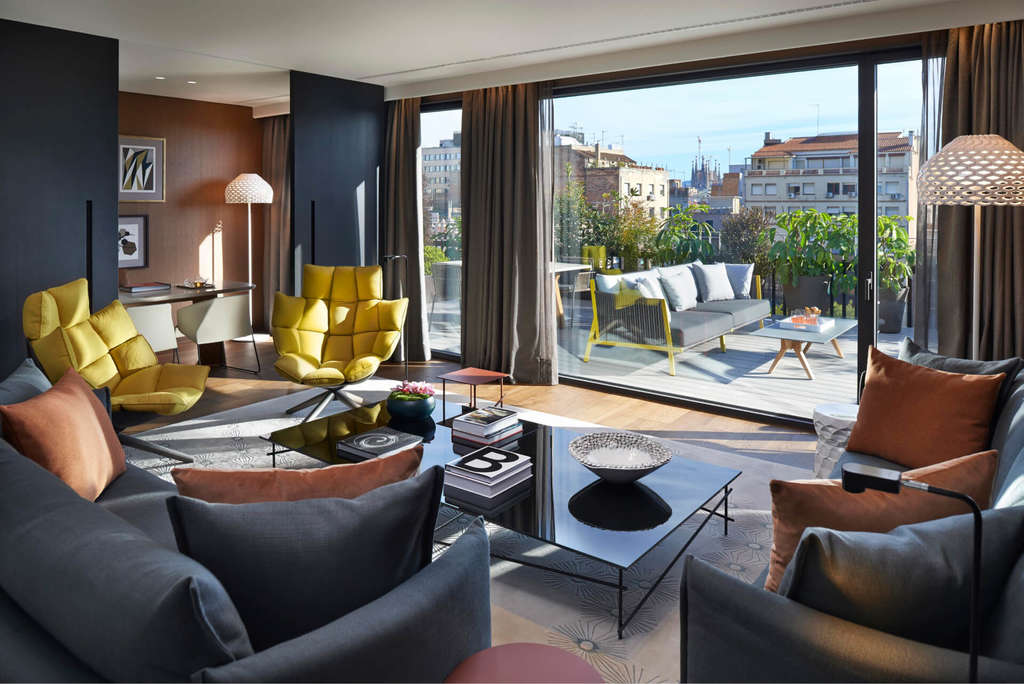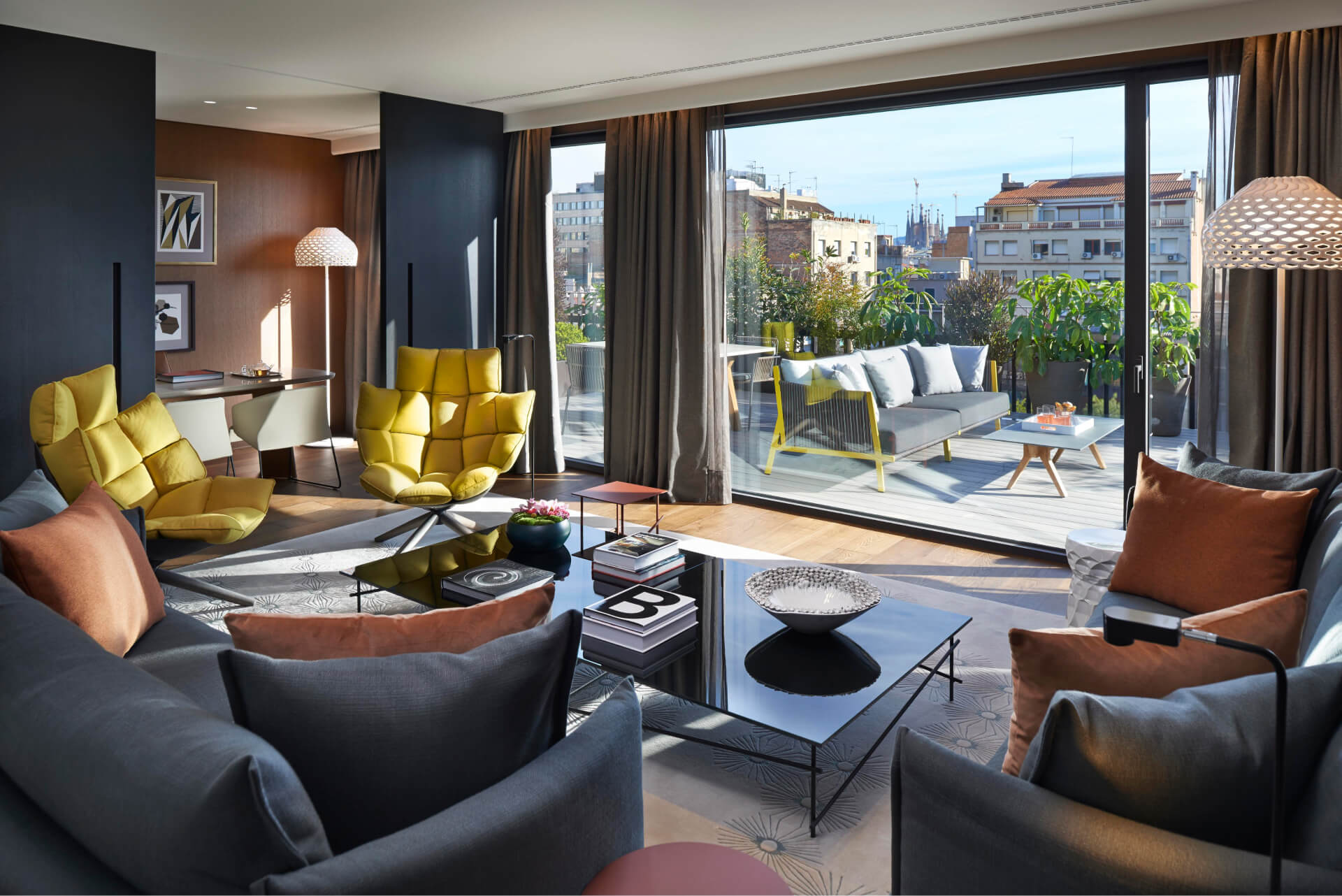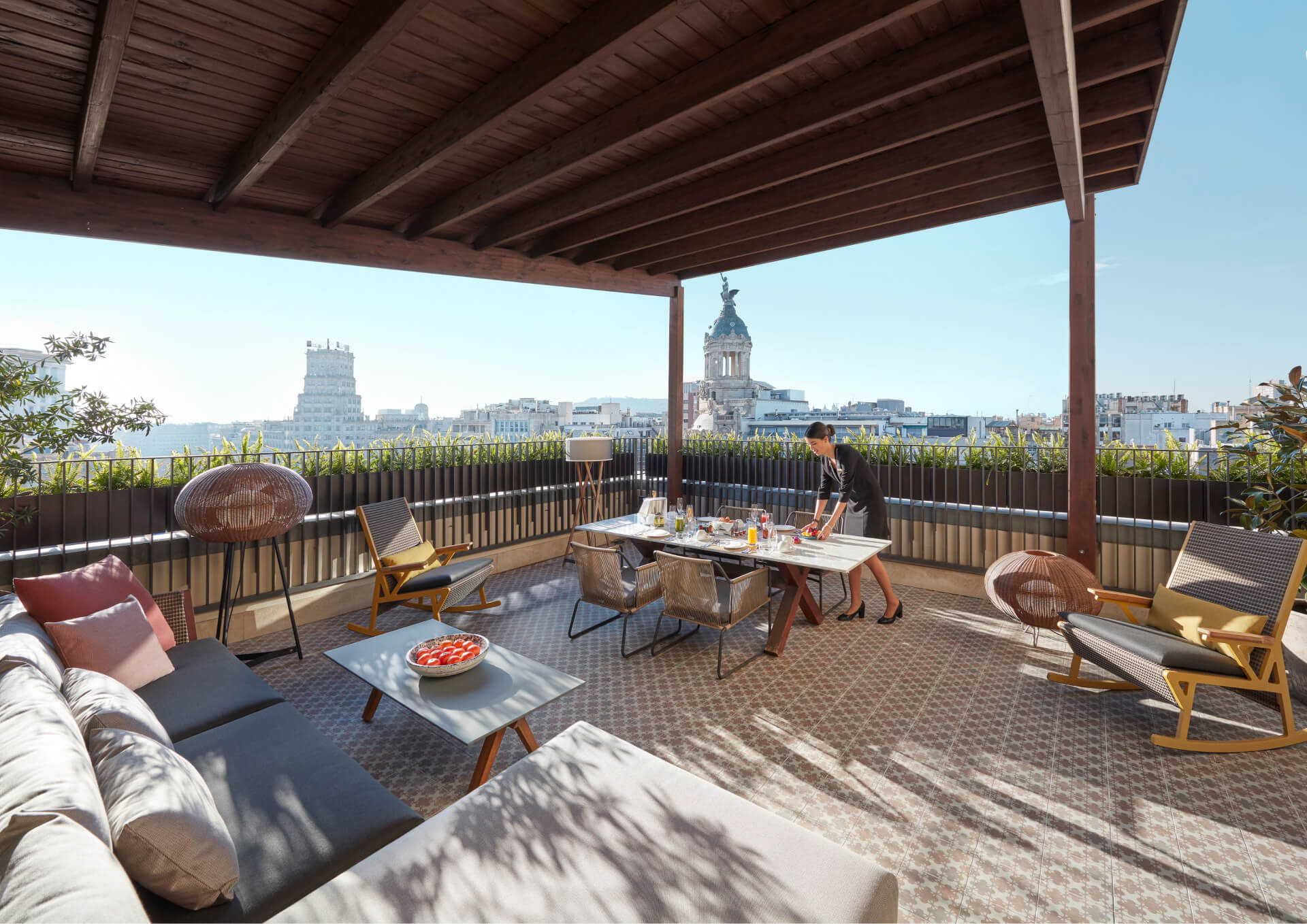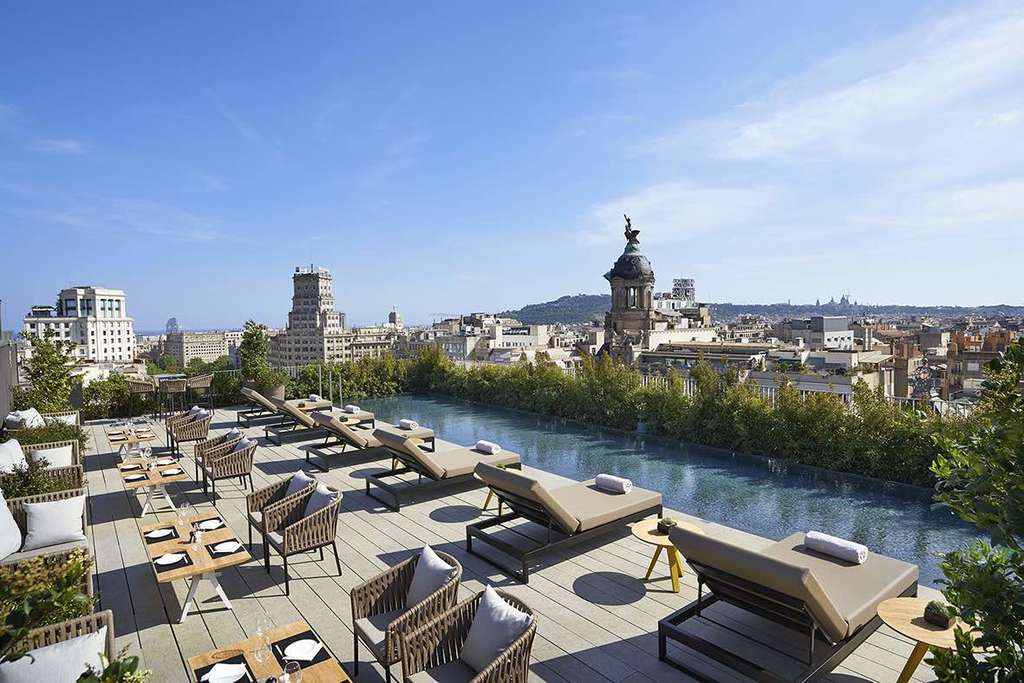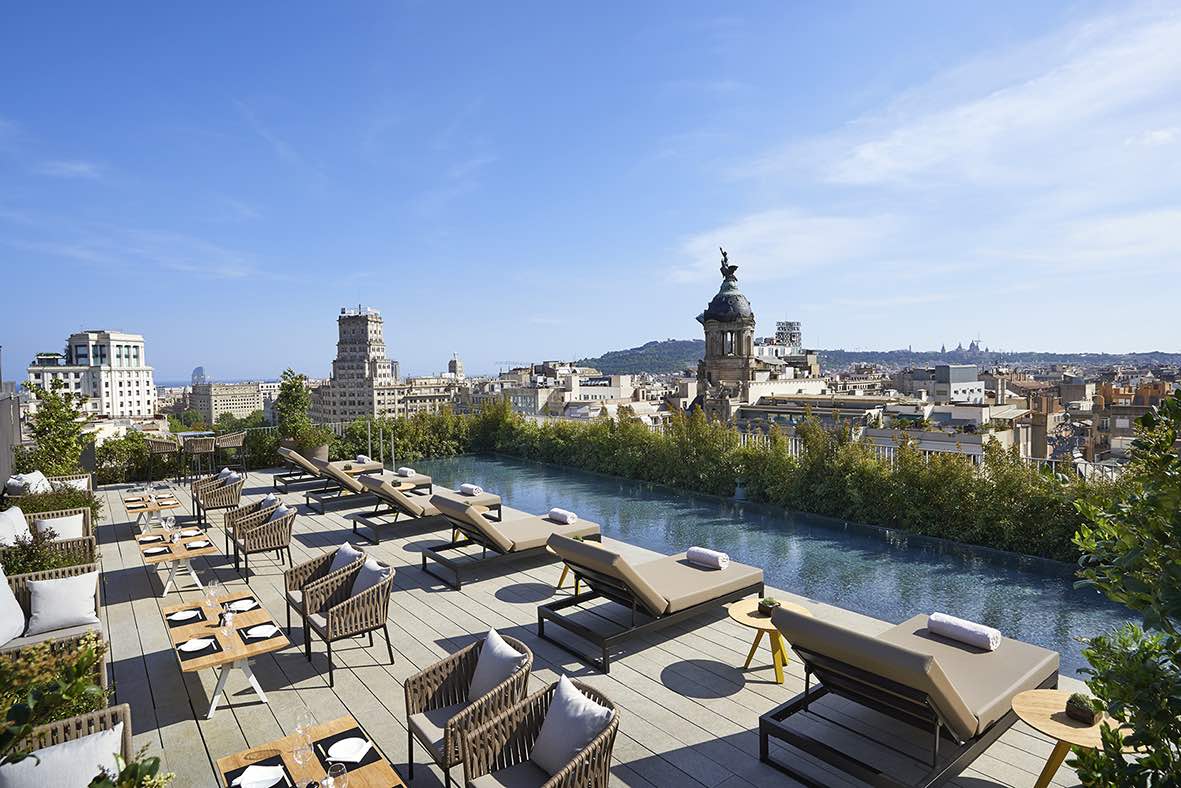Elevating Luxury in Hospitality: Mandarin Oriental, Barcelona's Journey with Infrasys Cloud POS
Located in the heart of Barcelona's Passeig de Gràcia, Mandarin Oriental, Barcelona is a blend of Spanish charm and Asian influence. It's a luxury hotel set in a renovated modernist building, with interior designs by Patricia Urquiola. Key features include an award-winning spa, a rooftop terrace, and multiple dining options including the two Michelin-starred Moments restaurant. The hotel combines elegance with contemporary aesthetics, creating a unique, stylish ambiance that stands out among others.
Since opening, Mandarin Oriental, Barcelona has developed a reputation for exceptional, personalized service. And it’s this dedication to service that sets the stage for this case study of how they upgraded their technology to maintain these high standards.
For this case study we spoke with Adriana Avilés and Daniel Fernández to understand this story both from the F&B and IT perspectives.
Adriana serves as the Assistant Director of Food and Beverage at the hotel, managing daily operations. Her career evolved through experiences at various five-star hotels before a friend’s referral led her to Mandarin Oriental. Adriana values the hotel's unique approach of offering personalized experiences to guests, setting it apart from other luxury establishments.

We make our guests feel recognized and special, and I think this is something that makes a difference between Mandarin and the other five-star hotels all over the world.Adriana Avilés
Daniel has dedicated his career to ensuring the systems that power the hotel’s incredible hospitality run smoothly, and today leads IT for the property. Daniel's work at the hotel started a year before the property opened, making him one of the longest-serving employees. What sets Mandarin Oriental apart, according to Daniel, is the internal IT team that is not only providing services to staff but also directly to the guests, keeping them directly involved in the hospitality business, a practice he believes other hotels do not usually follow.
Challenges
While working in a beautiful hotel with a storied reputation, Adriana, Daniel, together with the team, found themselves facing a number of critical challenges that threatened their ability to maintain the service they were known for.
A workforce changed by the pandemic
The first challenge Adriana and Daniel faced was a workforce reshaped by the pandemic - a common challenge for hotels around the world. As many experienced hospitality professionals left the industry over the past few years, they found themselves having to hire less-experienced staff than usual.
Operational efficiency
The struggle to maintain operational efficiency was a significant challenge as well.
The ordering system the hotel was using at the time meant that waitstaff would manually write down orders before entering them again into the property’s Point of Sale (POS) system. This double-entry process was not only time-consuming but also prone to errors.
Sometimes the hostess would take the order by memory, and by the time they arrived at the POS, couldn’t remember which guest was taking the caffeinated coffee and which was taking the cafe latte,
Adriana confided. Given the expectation for world-class service, this led to awkward interactions with guests and challenged overall guest satisfaction.
Limitations in mobility
Mobility was yet another challenge the team was facing.
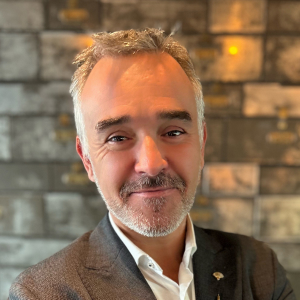
We have a two-star Michelin restaurant that we need to modify for an event from time to time. We need to cater to the needs of our guests and take advantage of opportunities that come up. Our job is to help make things happen. Daniel Fernández
However, the hotel's unique layout made it difficult to manage with their previous, fixed POS system. Due to the limitations of that technology, they lacked mobile ordering devices and faced connectivity issues, forcing the IT team to establish a new POS system for every event.
It was a struggle for us,
said Daniel, adding that the feeling was mutual among the staff who found the system slow and inflexible. Even simple tasks like introducing a new item or changing menus became tedious chores.
To provide the level of modern hospitality they aimed for, they needed always-on, anywhere connectivity. The team needed a system that allowed them to access their POS from any part of the property - or even offsite - to serve guests efficiently.
Legacy technology causing a bottleneck
Despite their best efforts to optimize operations, the outdated system they were working with limited their ability to innovate. When the team tried to introduce modern solutions, such as iPads for order-taking, the system did not support connectivity.
To compensate for the continued inefficiencies, they had to hire more staff. Yet that only showcased the challenges further. In-room dining staff had to go to the rooms, take the note on paper, then quickly head down to input the order into the system. It was a tedious process,"
Daniel explained.
With limitations on resources to hire more and more staff, and frustration mounting from not being able to utilize modern technology due to connectivity limitations, the decision to make a change became inevitable. Daniel reached out to his colleagues at Mandarin Oriental corporate office to understand what they might do.
Evaluating options
After explaining their wide-ranging challenges, Daniel and his team were given two alternatives: They could either continue working with the same company they had been using or switch to another company, Shiji Group.
Daniel and his team decided to evaluate both paths carefully, starting with a personal visit to Mandarin Oriental Ritz, Madrid - which was already using Infrasys, Shiji’s POS solution. "I saw for myself that it was very good, very easy to use," he noted, emphasizing the simplicity of the solution.
A critical factor in the decision was the support offered by the two respective companies. Daniel had hesitations because of the challenging experience of the previous company's support team. On the other hand, the feedback regarding Shiji's support team from industry colleagues was positive.
Evaluating technology well is all about seeing the technology in action and talking to the people actually using it,
Daniel shared. After going through a rigorous evaluation process that included both of these elements, Mandarin Oriental, Barcelona team decided to move forward with Shiji’s Infrasys.
Planning and executing a smooth transition
Once they decided to make the move, the idea of moving from one system to another without slowing down operations was a little intimidating at first. However, Daniel knew that with careful planning and collaboration with Shiji Group, they could do it. The team that we had from Shiji was really, really good,
he told us.
 Given the continuous operation of their restaurants, they needed a strategy that wouldn't disrupt service. So, they decided to plan the transition and implementation carefully and do it in phases.
Given the continuous operation of their restaurants, they needed a strategy that wouldn't disrupt service. So, they decided to plan the transition and implementation carefully and do it in phases. We had two months of preparation before the on-site implementation,
Daniel remembered.
The team started by imagining the ideal state. We began with how we wanted our POS to look like - the screens, the menus, everything,
Adriana said. They also thought carefully about training and how they would introduce the technology to their teams.
After a lot of planning, the onsite work began. We created a headquarters for the project in one of our old meeting rooms,
Daniel recalled. It was like our hub - filled with products and information documents - and was also our training room.
With space, time, and a strategy for moving forward, all the pre-arranged data was loaded into Infrasys, and the supporting hardware was configured.
One of the substantial changes they were making was the use of WiFi, which, considering the strict security measures at Mandarin Oriental, was previously considered a risk. However, through rigorous testing, they ensured everything was functioning correctly and securely before going live.
With careful preparation, the activation of the new system took place successfully executed in one morning. It went really well,
Adriana shared. We didn't even have any issues that morning. We were prepared,
Daniel added.
The switch to Shiji's Infrasys ended up being a smooth transition, opening the door for the efficiency and effectiveness the team had hoped for.
The results of working with Infrasys
Today, Adriana, Daniel, and the entire Mandarin Oriental, Barcelona team are now reaping the benefits of using Infrasys. The first thing they noticed was the big increase in efficiency, which led to significant time savings. Previously, taking and processing each order took a long time because of the distance between the tables and the kitchen.
Today, the time spent has been cut into a fraction of what it used to be. “I’d estimate we are saving 5-10 minutes per order today,” Adriana said.
In a hotel with 120 rooms, breakfast alone typically involves more than 200 orders, so the total time savings across each meal served is very substantial. These time savings have now enabled staff to consistently meet the hotel’s strict service standards and delivery times for coffee and food. But it has also improved guest engagement. Infrasys allows staff to attach information about the guest to the check, which then can be saved to the property management system (PMS), allowing them to remember preferences and other information to provide a delightful experience.
The impact on the business today is tangible, as seen in the marked increase in guest satisfaction scores. In addition, there is a significant improvement in the staff's experience, since Infrasys is intuitive and comes with comprehensive, embedded training.
From an IT perspective, Daniel pointed out that the new system has resulted in substantial time savings in keeping the system functional, security improvements, and a seamless reporting process. The system's capability to handle rights, permissions, and access has been an essential upgrade, given the need for impeccable data security in hospitality. We’ve improved security a lot, and this is very important for us,
he said.
Furthermore, the duo mentioned that Infrasys is playing a crucial role in decision-making processes today. For example, the system's analytics and reporting capabilities allow them to analyze itemized sales, helping decide which items to keep or remove from the menu based on their popularity. But that's not all.
“We can see how revenue fluctuates from hour to hour,” Adriana shared. “For example, this summer we needed to make a decision about the opening hours of our cocktail bar. We saw that between 5:00 and 7:00 we are not doing much business, so we decided to close from 5:00 to 7:00 and are now saving money without hurting guest satisfaction.”
A case study in the transformative power of combining smart operational strategy with modern technology
The adoption of Shiji's Infrasys at Mandarin Oriental, Barcelona has transformed the hotel's operations, delivering significant efficiency gains, enhancing guest satisfaction, and facilitating improved decision-making. The significant time savings have freed staff to focus more on engaging with guests, translating to better guest experiences and increased satisfaction scores.
Infrasys has helped the hotel meet its stringent service standards by ensuring timely delivery of services, while the capacity to attach detailed information about guests to checks has enabled enhanced personalization, further elevating the guest experience.
From an IT perspective, the new system has streamlined operations, with a substantial reduction in time spent on maintaining the system. Additionally, the system has significantly improved security by making it easier to monitor and report threats, crucial in an industry where safeguarding sensitive information is paramount.
The reporting capabilities of Infrasys have also enabled more informed decision-making, from optimizing menus based on itemized sales analysis to adjusting the opening hours of the cocktail bar to maximize revenue.
In summary, the implementation of Shiji's Infrasys at Mandarin Oriental, Barcelona represents a true success story, demonstrating the transformative potential of technology in hospitality. What Daniel and Adriana and their teams were able to accomplish shows that the adoption of the right technology not only enhances operational efficiency but also improves guest satisfaction, providing a significant competitive advantage in a high-expectation industry.
Investing in advanced POS systems like Infrasys isn't just about modernizing operations—it's about delivering exceptional experiences that keep guests coming back.
About Mandarin Oriental, Barcelona
Mandarin Oriental, Barcelona is an exclusive hotel situated on Barcelona’s Passeig de Gràcia. The property has 120 bedrooms and suites with an exquisite and elegant interior design by Patricia Urquiola. Its carefully considered gastronomic offering currently consists of two restaurants: Blanc restaurant, and the signature restaurant Moments, awarded two Michelin stars and providing neo-traditional Catalan cuisine under the auspices of the multi-Michelin-starred Chef Carme Ruscalleda and her son Raül Balam. Mandarin Oriental, Barcelona appeals as a meeting point for guests and local residents alike, and offers enticing spaces such as: the Mimosa garden; the Terrat, with exceptional panoramic views and a gastronomic offer from Peruvian Celebrity Chef Gastón Acurio; and the Banker’s Bar, with its extensive cocktail menu and a cosmopolitan atmosphere. Mandarin Oriental, Barcelona also has a 1,000 square metre Spa, where guests can enjoy innovative and exclusive treatments.
About Shiji Group
Shiji is a global technology company dedicated to providing innovative solutions for the hospitality industry, ensuring seamless operations for hoteliers day and night. Built on the Shiji Platform—the only truly global hotel technology platform—Shiji's cloud-based solutions include property management system, point-of-sale, guest engagement, distribution, payments, and data intelligence for over 91,000 hotels worldwide, including the largest hotel chains. With more than 5,000 employees across the world, Shiji is a trusted partner for the world's leading hoteliers, delivering technology that works as continuously as the industry itself. That's why the best hotels run on Shiji—day and night. While its primary focus is on hospitality, Shiji also serves select customers in food service, retail, and entertainment in certain regions. For more information, visit shijigroup.com.



